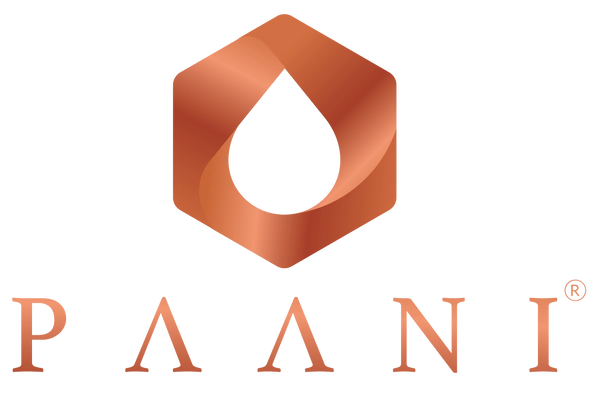PROPER HYDRATION AND ATHLETIC RECOVERY

Hydration plays a vital role in athletic performance and recovery. Whether you are a professional athlete or a fitness enthusiast, maintaining optimal hydration levels can significantly enhance endurance, strength, and overall well-being. Using a copper water bottle can further support hydration and overall wellness by offering additional natural health benefits. Water is essential for regulating body temperature, lubricating joints, and transporting nutrients—making it a crucial component of an athlete's routine. Without adequate hydration, the body struggles to perform efficiently, leading to fatigue, decreased coordination, and an increased risk of injuries.
The Role of Hydration in Athletic Performance
Dehydration, even at mild levels, can impair physical performance. A loss of just 2% of body weight due to fluid loss can lead to reduced endurance, increased fatigue, and decreased cognitive function. Proper hydration and recovery helps maintain blood circulation, allowing oxygen and nutrients to reach muscles efficiently, which in turn supports sustained performance. Additionally, hydration prevents muscle cramps, dizziness, and overheating—common issues athletes face when exerting themselves.
Beyond physical effects, hydration also plays a crucial role in mental performance. Cognitive function, focus, and reaction times can all suffer from dehydration, which is especially important for sports requiring quick decision-making and coordination. Maintaining proper hydration ensures that both the body and mind function optimally during athletic activities.
Hydration Strategies for Athletes
Athletes must adopt a proactive approach to hydration before, during, and after exercise. Strategies include:
-
Pre-exercise Hydration: Drinking water in the hours leading up to physical activity ensures the body starts in a well-hydrated state. A general recommendation is to consume 500–600ml of water 2–3 hours before exercise. Additionally, consuming a small amount of electrolytes before a workout can help the body retain fluids more effectively.
-
Hydration During Exercise: Fluid intake during activity depends on duration and intensity. For workouts lasting less than an hour, water is typically sufficient. For longer sessions, incorporating electrolyte-enhanced drinks can help maintain balance. Athletes engaging in endurance sports such as marathon running or cycling should aim to consume small amounts of fluids at regular intervals to prevent dehydration.
- Post-exercise Hydration: Replenishing fluids after exercise is critical for recovery. Drinking water along with a source of electrolytes helps restore hydration levels and facilitates muscle repair. Including fluids that contain natural sugars and sodium, such as coconut water, can further assist in rehydration and replenishment of lost minerals.
Electrolyte Balance and Its Importance
Electrolytes such as sodium, potassium, calcium, and magnesium are essential for muscle function, nerve signalling, and fluid balance. Intense workouts lead to electrolyte loss through sweat, making replenishment crucial. An imbalance can result in fatigue, muscle weakness, and cramping. Natural sources of electrolytes, such as coconut water, bananas, and leafy greens, are excellent additions to an athlete’s diet.
In addition to food sources, athletes can benefit from electrolyte supplements or sports drinks, particularly in high-intensity or prolonged workouts. However, it’s important to avoid sugary, artificial drinks that may do more harm than good. Choosing natural hydration solutions ensures sustained energy without unnecessary additives.
Hydration and Recovery
Proper hydration accelerates post-exercise recovery by aiding muscle repair, reducing inflammation, and flushing out toxins. Water supports protein synthesis, which is necessary for rebuilding muscle tissues. Furthermore, adequate hydration prevents stiffness and soreness, allowing for quicker recovery and improved performance in subsequent workouts.
Hydration and recovery also plays a crucial role in regulating body temperature. When athletes engage in intense physical activity, their core temperature rises. Sweating helps to cool the body down, but if fluids are not replenished, the risk of overheating increases, leading to heat exhaustion or heatstroke. Ensuring adequate hydration post-exercise helps restore the body's balance and prepares it for future activity.
Practical Tips for Maintaining Optimal Hydration
- Carry a reusable Paani Copper Water Bottle, which not only keeps water cool but also provides natural antimicrobial properties that may support overall health and digestion.
- Monitor urine colour—pale yellow indicates proper hydration, while darker shades suggest dehydration.
- Include hydrating foods like cucumbers, oranges, and watermelon in your diet.
- Listen to your body—thirst is a natural indicator of fluid needs.
- Avoid excessive caffeine and alcohol, as they contribute to dehydration.
- Establish a hydration routine that aligns with your training schedule, ensuring you drink adequate amounts before, during, and after exercise.
- Consider using hydration tracking apps or setting reminders to help maintain consistent water intake
Hydration is a cornerstone of athletic success and recovery. By implementing effective hydration strategies and maintaining electrolyte balance, athletes can optimise performance and enhance recovery. Making hydration a priority, both on and off the field ensures sustained energy, improved endurance, and overall well-being.
Incorporating hydration habits into daily life, not just during training or competitions, is key to long-term health and performance. Whether through water, electrolyte-rich foods, or natural hydration solutions, staying adequately hydrated is an investment in athletic success. Choosing a Paani Copper Water Bottle can be a sustainable and beneficial way to stay hydrated, offering a stylish and health-conscious alternative to plastic bottles. Stay hydrated, stay strong!
